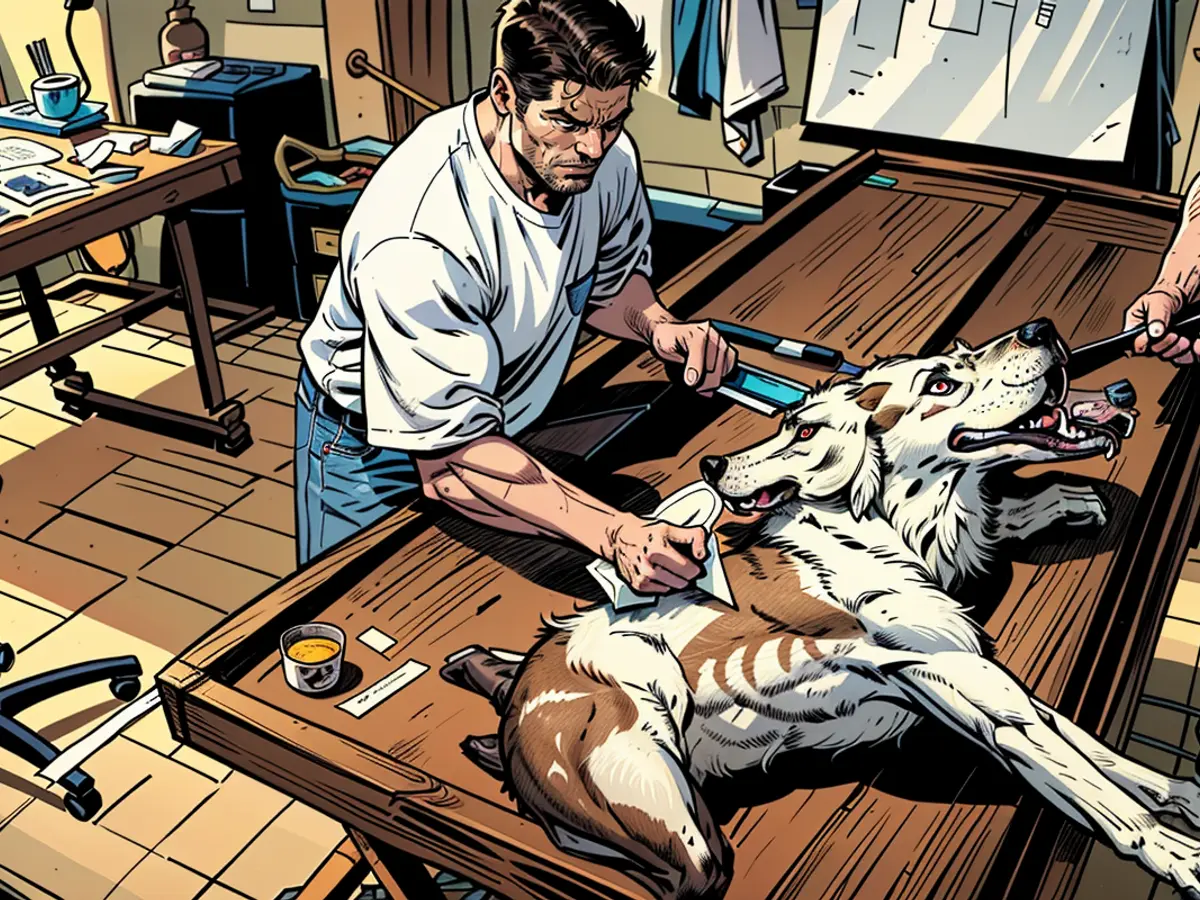Treasure hunt-Monitoring - Too many dead wolves: Some animals will not be examined
The number of dead wolves found has become so large that only every second animal can be examined in detail now. By early May, every carcass had landed in the CT scanner and on the dissection table, explained the Leibniz-Institute for Zoo and Wildlife Research (Leibniz-IZW) in Berlin. This is no longer feasible with over a hundred dead wolves per year.
Recently, the 1000th dead wolf was examined at the institute. About three quarters of these wolves had died in traffic accidents. One in ten animals had been illegally shot, although wolves are strictly protected in Germany and cannot be hunted. Since 1990, 17 wolves have been legally killed.
The 1000th animal: a she-wolf with six cubs
The 1000th animal was a she-wolf, pregnant with six cubs. This symbolizes the successful breeding of the animals, explained Heribert Hofer, Director of the Leibniz-IZW. Since almost a quarter of a century, there have been wolf cubs in Germany.
In the latest wolf monitoring, more than 1339 wolves were detected in Germany, distributed almost everywhere in the federal states, with focal points in Saxony, Brandenburg, Saxony-Anhalt, Mecklenburg-Vorpommern and Lower Saxony. The carcasses also came from various parts of Germany.
Marie Neuwald, spokesperson for Wolves at the Nature Protection Association NABU, notes that traffic is indeed a danger, but it does not significantly limit the wolf population. There are also other causes of death, but they rarely show up in the carcass monitoring. "Wolves that die from other causes such as diseases and fights with other wolves are rarely found, as they do not lie down on a forest path to die."
- The Leibniz-Institute for Zoo and Wildlife Research in Berlin has been conducting extensive research on wolves in Germany, particularly focusing on the impact of their environment and agriculture on their population.
- Despite Germany being home to over 1300 wolves, the illegal hunting of these animals remains a concern, with one in ten wolves falling victim to such activities.
- The issue of wolf conservation in Germany extends beyond traffic accidents and illegal hunting, as other causes of death such as diseases and fights with other wolves often go unnoticed in carcass monitoring.
- In the heart of Europe, Berlin serves as a hub for scientific research on Germany's growing wolf population, providing valuable insights into the interaction between wolves and their environment to promote their conservation.






